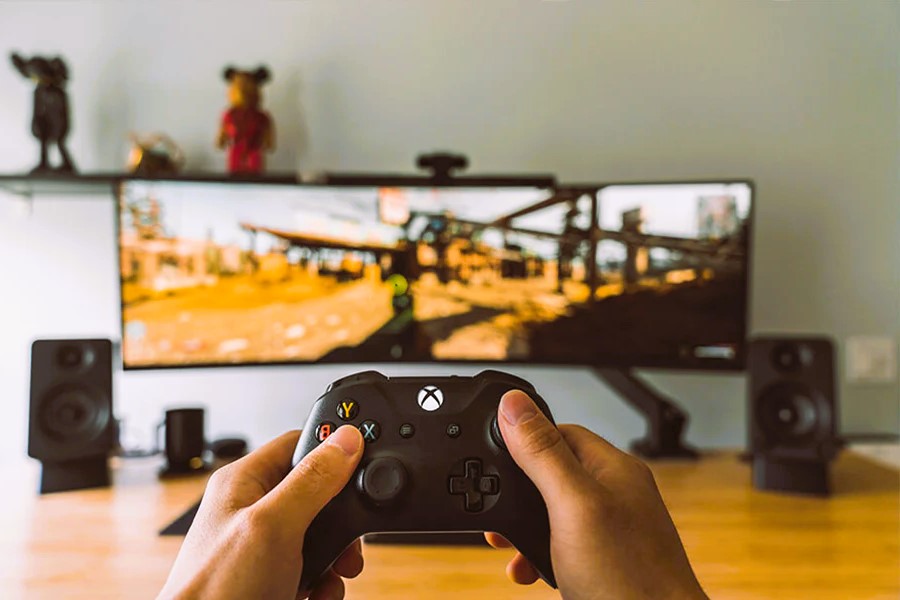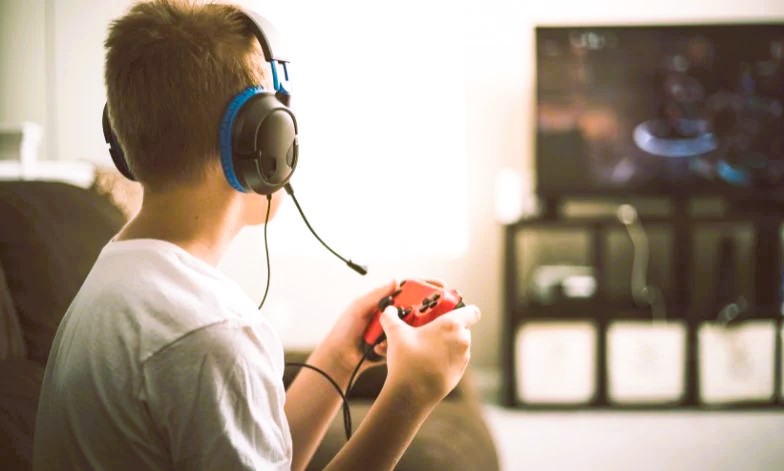Alright, let’s get real—life can be a dumpster fire sometimes, right? Whether it’s work, school, or just the general chaos of existence, stress hits us all. But hey, there’s one thing that can throw a fire extinguisher on that pressure: gaming. I’m talking about that sweet, sweet escape where you’re not worrying about bills or deadlines—just you, your squad, and a screen full of epic moments.
But wait, it’s not just about slaying noobs and leveling up. Gaming can actually improve your mental health. Yeah, you heard that right. We’re diving into the science behind it, and I’m gonna spill all the beans like it’s the last slice of pizza after a killer raid. Let’s go.
Gaming as a Stress Buster
First, let’s talk stress. We all know what it feels like: heart racing, mind spinning, and you’re just praying for some peace. Enter gaming. Whether you’re playing a chill RPG or a fast-paced FPS, gaming is one hell of a stress reliever.
The Brain’s Chill Pill: The Power of Distraction
When you dive into a game, your brain goes into what we call a “flow state.” This is like when you’re so focused, you forget everything else. It’s like hitting the reset button on your brain. Instead of obsessing over that awful email or the endless to-do list, you’re all in, living in the moment. That mental shift can do wonders for reducing stress and anxiety.
- Escape Reality: Games let you step into a world where you’re the hero or the villain, and there’s no “real world” baggage.
- Decreased Cortisol: Studies show gaming can lower cortisol levels (that’s the stress hormone) while giving you a boost of dopamine—AKA the happy hormone.
The Mental Health Perks You Didn’t Know You Needed
Alright, so it’s not all about stress relief. There’s more going on under the hood. Gaming doesn’t just make you feel good—it actually helps improve your mental health.
Boosts Self-Esteem and Confidence
When you crush a boss fight or pull off a crazy play, it’s a legit win. And with every success in-game, you’re not just leveling up your character—you’re leveling up yourself. Gaming teaches you to take risks, handle failure, and, most importantly, keep going.
- Achievement Unlocked: Completing quests or mastering a game gives you a sense of accomplishment. That small victory can go a long way in building confidence.
- Progressive Learning: As you advance, you’re constantly learning new strategies, improving your skills, and growing. The “I can do this” mentality carries over into real life too.
Social Connection and Teamwork
Gaming has one of the most underappreciated features: it’s social. You’re not just playing against AI (unless you’re into single-player)—you’re connecting with a whole squad of people from all over the world. Multiplayer games, especially in the esports scene, are all about teamwork.
- Building Bonds: Whether it’s chatting with friends, teaming up for a raid, or collaborating in esports tournaments, gaming fosters deep social connections. And these relationships can be incredibly meaningful.
- Reduced Loneliness: When you’re online, you’re part of a community. For many people, this community becomes a support system that reduces feelings of isolation.
For the Devs, Modders, and Streamers: A Personal Touch

Now, let’s get into the nitty-gritty of how gaming can impact different folks in the gaming ecosystem.
For the Game Devs & Modders: Stress Relief Through Creativity
Creating games or mods is like a high-stakes puzzle. Sure, it’s challenging, but the sheer joy of crafting something new can do wonders for mental health. If you’re coding or modding, you’re tapping into that sweet creative zone, and that’s a known mood booster.
- Creative Expression: Modding or developing allows you to express yourself, and that release can help reduce mental strain. You’re basically putting your heart into your work, and it pays off—big time.
- Problem-Solving Bliss: Overcoming bugs or design challenges isn’t just a productivity win—it can be a major confidence booster. And yes, that dopamine hit feels as good as a victory royale. The most in-demand jobs in the gaming industry, read our complete guide to promotion.
For the Esports Pros: Zero-Lag, All Wins
Esports teams live and breathe by their performance. Every match is a chance to shine, but also a lot of pressure to succeed. Managing stress and keeping calm under pressure is a big part of maintaining mental health in competitive gaming.
- Mental Endurance: Competitive gamers train their minds as much as their reflexes. Meditation, mindfulness, and mental conditioning can help keep those nerves in check when the stakes are high.
- The Team Factor: A solid team dynamic means less stress and more camaraderie. It’s all about mutual support, and that helps when you’re in the heat of battle.
For Streamers: Keep Your Cool (No Frame Drops)
For streamers, there’s no feeling like being in front of an audience. But with great power comes great stress—one wrong move, and you could lose viewers. Keeping your mental health intact while staying connected with your audience is key.
- The Power of Interaction: Streaming can feel like a one-way street, but the feedback from fans keeps you going. Plus, your audience can often be a great source of support when you’re feeling down.
- Stress-Free Streaming: No lag, no dropped frames, just smooth gameplay. (If you’re a streamer, you know exactly how that feels.) Gaming can give you a sense of control over the environment, letting you shine.
Gaming as a Gateway to Mental Wellness: The Takeaway
Let’s wrap this up. Gaming isn’t just about escapism. It’s a legitimate tool for reducing stress and boosting mental health. Whether you’re playing to unwind, creating the next big game, or fighting to win an esports tournament, gaming has a lot more to offer than just entertainment. It’s about connection, growth, and well-being.
So next time you fire up your PC, console, or whatever rig you’re rocking, remember: you’re not just playing a game—you’re improving your mental health. And yeah, I’d say that’s one hell of a bonus.
For more on how gaming affects mental health, check out this Wikipedia article on gaming and mental health.

